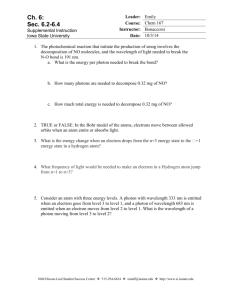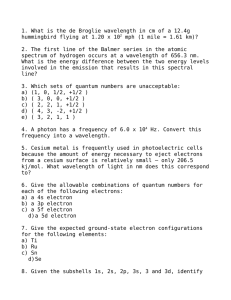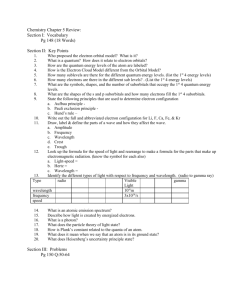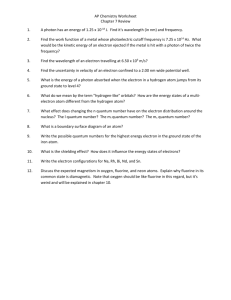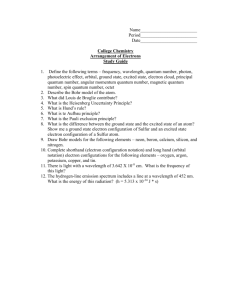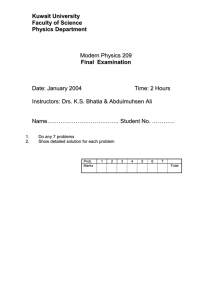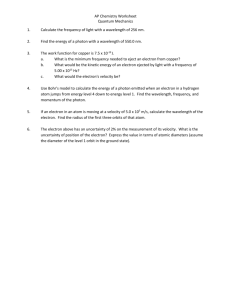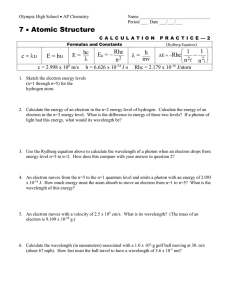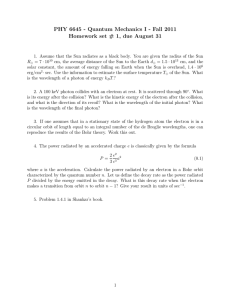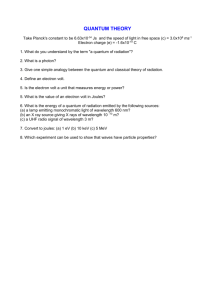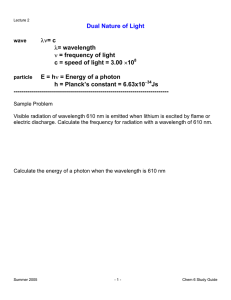Exam 3 Worksheet
advertisement
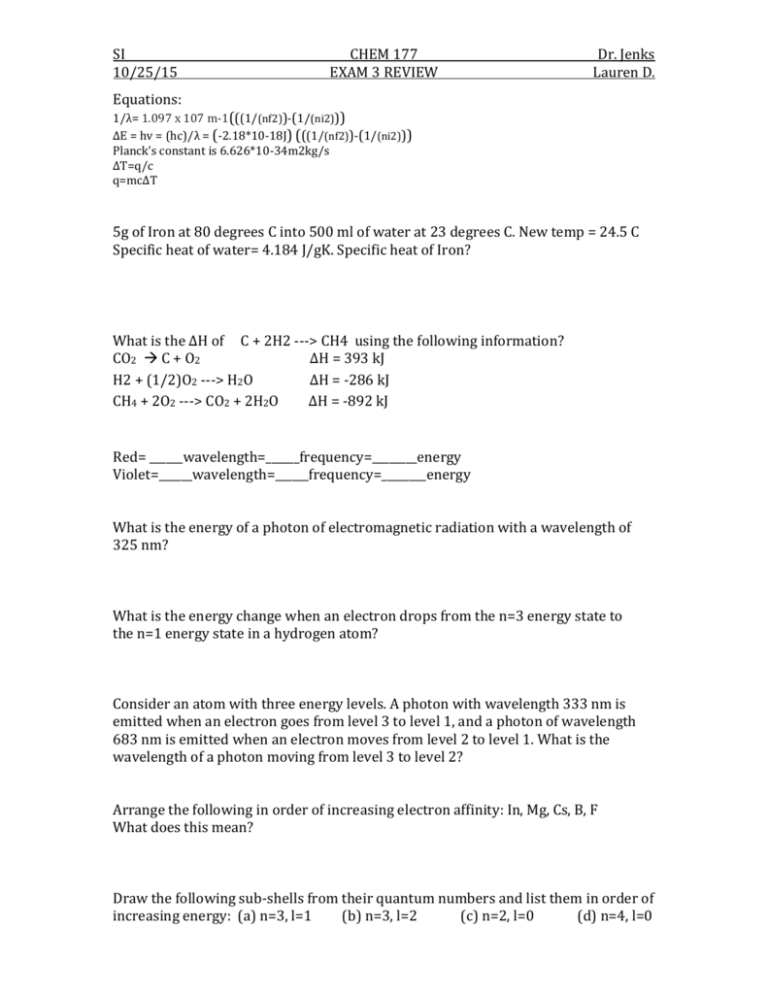
SI 10/25/15 CHEM 177 EXAM 3 REVIEW Dr. Jenks Lauren D. Equations: 1/λ= 1.097 x 107 m-1(((1/(nf2))-(1/(ni2))) ΔE = hv = (hc)/λ = (-2.18*10-18J) (((1/(nf2))-(1/(ni2))) Planck’s constant is 6.626*10-34m2kg/s ΔT=q/c q=mcΔT 5g of Iron at 80 degrees C into 500 ml of water at 23 degrees C. New temp = 24.5 C Specific heat of water= 4.184 J/gK. Specific heat of Iron? What is the ΔH of C + 2H2 ---> CH4 using the following information? CO2 C + O2 ΔH = 393 kJ H2 + (1/2)O2 ---> H2O ΔH = -286 kJ CH4 + 2O2 ---> CO2 + 2H2O ΔH = -892 kJ Red= ______wavelength=______frequency=________energy Violet=______wavelength=______frequency=________energy What is the energy of a photon of electromagnetic radiation with a wavelength of 325 nm? What is the energy change when an electron drops from the n=3 energy state to the n=1 energy state in a hydrogen atom? Consider an atom with three energy levels. A photon with wavelength 333 nm is emitted when an electron goes from level 3 to level 1, and a photon of wavelength 683 nm is emitted when an electron moves from level 2 to level 1. What is the wavelength of a photon moving from level 3 to level 2? Arrange the following in order of increasing electron affinity: In, Mg, Cs, B, F What does this mean? Draw the following sub-shells from their quantum numbers and list them in order of increasing energy: (a) n=3, l=1 (b) n=3, l=2 (c) n=2, l=0 (d) n=4, l=0 SI 10/25/15 CHEM 177 EXAM 3 REVIEW Dr. Jenks Lauren D. Which one of the following represents an acceptable possible set of quantum numbers (in the order n, l, ml, ms) for an electron in an atom? a. 2, 1, -1, +1/2 b. 2, 1, 0, 0 c. 2, 2, 0, +1/2 d. 2, 0, 1, -1/2 e. 2, 0, 2, +1/2 Is it possible to have two electrons in the same atom to have the same set of quantum #s? Why or why not? Order the following elements from smallest Zeff to largest Zeff: Al, Cl, N, Li Rank them from largest to smallest in terms of size: Al, Si, Mg, Na Lithium has a specific heat of 3.56J/°c. How much heat (in kJ) must be added to warm 4.2 moles of Li from 27 degrees to 51 degrees c? Calculate the change in enthalpy, ΔH, when 5.2g of hydrogen peroxide decomposes. H2O2(l) → H2O(l) + 1/2 O2(g); ΔH = -98.2 kJ What is the electron configuration of Al? Al3+? Cl-? Demonstrate Hund’s rule for Phosphorous using an orbital diagram (boxes and arrows). Write an isoelectric series for Sulfur. Rank these elements and ions in order of size.
